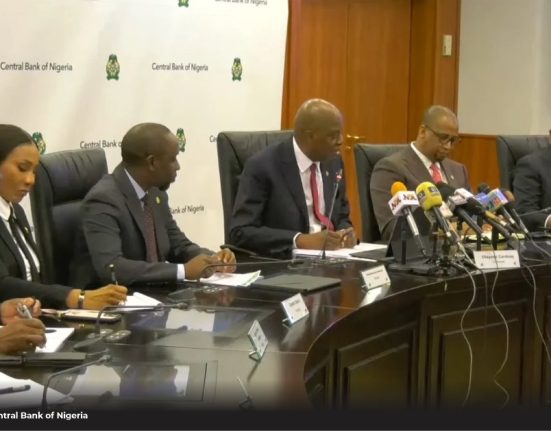After weeks of public scrutiny and mounting concerns, the Joint Admissions and Matriculation Board (JAMB) has finally opened up on the true state of the 2025 UTME resit, and the revelations are both surprising and reassuring. The review session, which took place on Tuesday at the JAMB Headquarters in Abuja, brought together Chief External Examiners (CEEs) from all 36 states, alongside observers such as Senator Shehu Sanni, representatives from Educare, and former Minister of Aviation, Hon. Osita Benjamin Chidoka.
Opening the session promptly at 10:00 AM, the Registrar of JAMB declared that the meeting’s purpose was to present a detailed review of the resit exercise, assess all issues that emerged from the conduct of the examination, and define a path forward. He reminded all attendees that the UTME remains a placement exam, not a certification exam, and that the primary goal is to determine eligibility for tertiary admission, not to award qualifications.
Among the first things discussed was candidate turnout. According to the Registrar, the resit recorded a 95% attendance rate across the country, a figure the Board described as encouraging. He confirmed that candidates who missed the resit for any reason would be rescheduled to sit for the exam at a future date.
But one of the most debated issues in the room was the matter of underage candidates. The Registrar revealed that the number of candidates flagged as underage, defined as anyone who would not be at least 16 years old by October 2025, had risen from 456 to 597. These candidates had been shortlisted for possible special consideration under the “gifted” category. This prompted a heated deliberation. Should their results be released or withheld? After contributions from stakeholders, it was agreed that, for this sitting only, JAMB would release their results. However, higher institutions would be strictly required to uphold the regulation barring the admission of candidates below 16 years of age.
Also brought to the table were reports of examination malpractice. Though the Registrar noted that such incidents were relatively few compared to the overall number of candidates, he acknowledged that they still posed a threat to the integrity of the process. Sanctions, ranging from result cancellation to counselling and even permanent disqualification, were said to be on the table for confirmed cases. Hon. Chidoka, speaking from experience, advised that JAMB should not rely solely on its internal technical reviews but should also engage external IT audit firms periodically to assess the performance and integrity of its examination systems.
Another segment of the meeting focused on JAMB’s monitoring infrastructure during the resit. According to submissions made by the Board’s technical team, biometric verification was used to track attendance of both candidates and invigilators. A dedicated help desk, ticketing system, and WhatsApp coordination groups were also used to manage real-time issues during the exam. These measures, JAMB said, ensured swift identification of any problems at exam centres and quick response to emergencies.
Interestingly, the report showed that all examination centres were able to download the exam files prior to the test. Upload compliance was nearly perfect, with only two to seven centres failing to upload their data in some sessions, out of a pool of over 300. Those failures were immediately flagged by the system and rescheduled without human intervention. This, according to the Registrar, demonstrated the maturity and automation capacity of JAMB’s operational systems.
Perhaps the most anticipated part of the meeting was the result review. A special committee comprising CEEs from Lagos, Anambra, and three other states, along with the Educare team, was tasked with validating the integrity of the scores and identifying anomalies. Their findings were compelling. Across sampled centres where initial performance had been poor, resit scores showed remarkable improvement. In some areas, more than 70% of candidates scored above 200. Re-evaluation of scripts from candidates who performed poorly showed consistency with their final scores, dispelling any doubts about the fairness of the marking system.
The meeting closed at about 5:15 PM, after a full day of analysis, debate, and reflection. The mood in the room was largely optimistic. JAMB reaffirmed its commitment to improving transparency, strengthening its infrastructure, and enforcing its policies, particularly around minimum admission age and examination conduct. The resit may have begun under a cloud of public concern, but the review has made it clear that progress is being made, and that the system is still capable of correcting itself.
The final report was compiled and submitted by the Educare Tech Team, led by Engr. James Nnanyelugo, and is expected to serve as a reference for internal process reviews and public assurance.
With this thorough review now complete, the focus shifts back to Nigeria’s tertiary institutions, who must now enforce the rules and admit only qualified candidates, regardless of performance.







